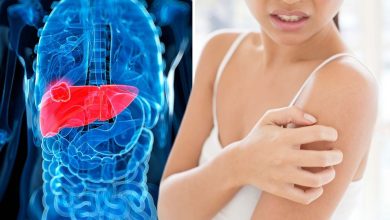Top Reasons for Headaches: Causes, Symptoms, and Treatment

Headaches are one of the most common health complaints that affect millions of people around the world. They can range from mild to severe, and in some cases, they can be debilitating. There are various reasons why headaches occur, and understanding the underlying causes can help you identify the right treatment for your specific type of headache. In this article, we will explore the top reasons for headaches, their symptoms, and treatment options.
Types of Headaches
There are several types of headaches, and each type has its unique symptoms and causes. Here are some of the most common types of headaches.
Tension Headaches
Tension headaches are the most common type of headache and usually occur due to muscle tension in the head, neck, and shoulders. They can be mild to moderate and typically feel like a band tightening around the head.
Migraine Headaches
Migraine headaches are a severe type of headache that can cause intense throbbing pain, usually on one side of the head. Other symptoms of migraines include sensitivity to light, sound, and smells, nausea, and vomiting.
Cluster Headaches
Cluster headaches are a rare type of headache that usually occurs in cycles, which can last from weeks to months. They cause severe pain on one side of the head, typically around the eye.
Sinus Headaches
Sinus headaches occur due to inflammation in the sinuses, which are located behind the forehead, cheeks, and eyes. They usually cause pain and pressure around the affected sinuses.
Rebound Headaches
Rebound headaches occur when a person overuses pain medications, leading to more frequent headaches.
Top Reasons for Headaches
Understanding the underlying causes of headaches can help you identify the right treatment for your specific type of headache. Here are the top reasons why headaches occur.
Stress and Anxiety
Stress and anxiety can cause tension headaches, which are the most common type of headache. These types of headaches usually feel like a band tightening around the head and can cause mild to moderate pain.
Dehydration
Dehydration is a common cause of headaches. When you are dehydrated, your brain can shrink slightly, leading to headaches.
Sleep Disorders
Sleep disorders like insomnia, sleep apnea, and snoring can cause headaches due to poor sleep quality.
Hormonal Changes
Hormonal changes, such as those that occur during menstruation, can cause migraines in some women.
Caffeine Withdrawal
Caffeine withdrawal can cause headaches, especially in people who are used to drinking several cups of coffee or other caffeinated beverages every day.
Sinus Infection
Sinus infections can cause sinus headaches, which usually cause pain and pressure around the affected sinuses.
Head Injury
Head injuries can cause headaches, especially if they result in a concussion or other traumatic brain injury.
Temporomandibular Joint (TMJ) Disorder
The temporomandibular joint (TMJ) connects the jaw to the skull, and disorders of this joint can cause headaches. TMJ disorder can be caused by jaw injury, teeth grinding, or stress.
Symptoms of Headaches
Headaches can cause a range of symptoms, depending on the type and cause of the headache. Some common symptoms of headaches include:
- Throbbing or pulsating pain
- A feeling of pressure or tightness around the head
- Sensitivity to light, sound, and smells
- Nausea and vomiting
- Dizziness or lightheadedness
- Blurred vision
- Fatigue or weakness
Treatment Options
The treatment for headaches depends on the type and cause of the headache. Here are some common treatment options for headaches:
Over-the-Counter Medications
Mild to moderate headaches can often be treated with over-the-counter pain relievers like acetaminophen, aspirin, or ibuprofen.
Prescription Medications
Prescription medications like triptans can be used to treat migraines, while muscle relaxants and antidepressants can be used to treat tension headaches.
Lifestyle Changes
Making lifestyle changes like reducing stress, getting regular exercise, and avoiding triggers like caffeine and alcohol can help reduce the frequency and severity of headaches.
Alternative Therapies
Alternative therapies like acupuncture, massage therapy, and biofeedback can be effective in treating some types of headaches.
Conclusion
Headaches can be a frustrating and sometimes debilitating condition, but understanding the underlying causes and treatment options can help you manage and prevent them. If you experience frequent or severe headaches, it’s important to talk to your doctor to determine the best course of treatment for your specific type of headache.
FAQs
- What is the most common type of headache?
- Tension headaches are the most common type of headache.
- What causes migraines?
- The exact cause of migraines is unknown, but they are believed to be caused by changes in the brain and genetics.
- Can dehydration cause headaches?
- Yes, dehydration can cause headaches due to the shrinking of the brain.
- How can I prevent headaches?
- Making lifestyle changes like reducing stress, getting regular exercise, and avoiding triggers like caffeine and alcohol can help prevent headaches.
- When should I see a doctor for my headaches?
- You should see a doctor if you experience frequent or severe headaches or if your headaches are accompanied by other symptoms like dizziness, confusion, or numbness.




